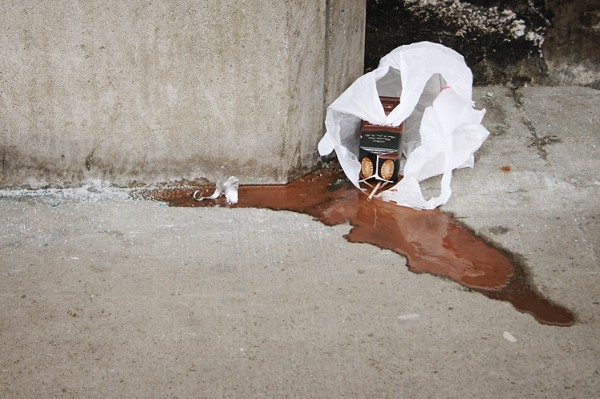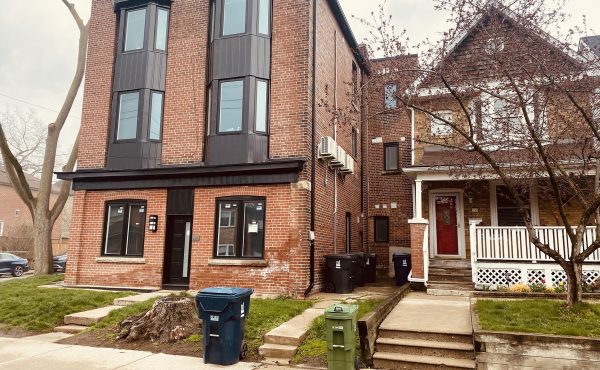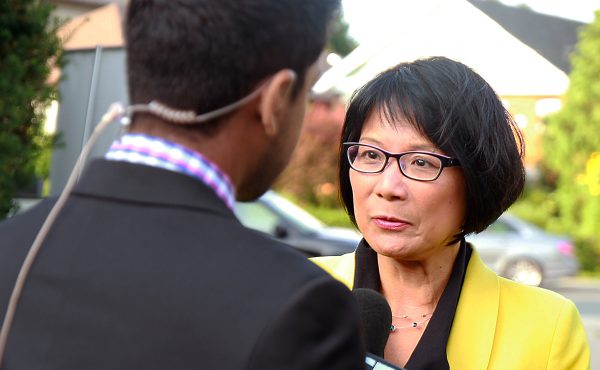
The plastic bag issue is returning to the Public Works and Infrastructure Committee on Wednesday. City staff are recommending a “comprehensive education and communication plan as the course of action,” with a budget of $300,000-$400,000. In other words, not to do very much at all.
The 5-cent plastic bag fee is unlikely to return, by the looks of it, but it’s worth taking this opportunity to consider its merits. The fee was not only effective (use of plastic bags dropped by 53%) but it was also a simple and elegant way to achieve this effect.
The 5-cent fee was an example of the “Nudge” theory of public policy, popularized by the book Nudge by Richard Thaler and Cass Sunstein. The idea is, essentially, to find ways to use small, targeted measures to shift people’s behaviour rather than heavy-handed and expensive regulations. It’s portrayed as a cross-partisan idea because it combines the liberal desire to encourage more socially constructive behaviour with the conservative ideal of people being able to choose their behaviour, and of minimizing government activity (the UK Conservative government is apparently keen on it). The idea has probably been over-hyped, but it’s useful in some cases, and plastic bags is a good example.
The good thing about the plastic bag fee is that it leaves some choice, or indeed the possibility of backup. I’ve been using reusable bags since before the fee, but sometimes I realize I need to buy something when I don’t have a bag with me. It’s good to have the option, and plastic bags are generally stronger, easier to carry, more waterproof and more re-usable than paper bags. And you’re more likely to reuse a plastic bag if you know you paid something for it (rather than if you just saw a City ad in the subway, as is being proposed).
One common complaint about the plastic bag fee was that retailers kept the money. But that was not actually a bug, it was a feature. First, of course, it gives retailers some incentive to actually charge the fee. But more importantly, it meant that the fee didn’t require any bureaucracy, any government oversight to calculate and collect the fees. We got a public policy goal (less waste) without having to expand government at all.
It was hardly a windfall for retailers, either. First, bags do cost retailers – probably a couple of cents a bag. As for the other 3 cents, that would pay for about 10 seconds of the time of a retail employee earning minimum wage ($10.25/hr) – just enough time for them to say “do you need a bag with that”? In other words, the 5 cents just about covers the employer’s costs in time and material for providing plastic bags. The 5-cent fee wasn’t a cash grab by either retailers or government — it simply made consumers to pay something like the actual cost of their decision to use a store-provided plastic bag.
One factor that may play into the opposition to a bag fee is that the quality of the bag varies widely from retailer to retailer. I now shop at a Foodland, which provides reasonably thick, strong bags that can almost always be reused. But I used to shop at Metro, which provides really flimsy bags that almost always get punctured on first use. It would indeed be aggravating to pay for one of those, and I suspect that factor contributed to the opposition (David Shiner, when he introduced the motion to abolish plastic bags, complained about their flimsiness). A simple solution to this problem would be to establish a minimum thickness of bag, as some other jurisdictions in North America have done, to ensure that any bags distributed are reusable.
A poll conducted for the city (PDF) showed that citizens are split exactly 50-50 on supporting or not supporting the 5-cent plastic bag fee. That’s probably too close for most politicians. But it leaves open the possibility that the fee could be re-introduced in the future.
Photo by Sam Javanrouh




8 comments
Good point about shoppers not always having a bag with them. It’s easy for motorists to keep several hefty, reusable carryout containers in their vehicle, ready whenever needed. But it’s different for active transportation and transit users, who tend to stop off to make a quick purchase on the way home during trips that may not be done with shopping as the prime purpose . Even when buying isn’t done on impulse, it may be difficult for people on foot to carry a few reusable shopping bags around with them for many hours.
A generation ago, paper bags were the norm. They are fine for dumping into a car trunk, but their general lack of handles makes them difficult to carry by hand for appreciable distances. Plastic bags that are given out by stores caught on first in Europe – precisely because on that continent, more shopping trips were done without a car.
Plastic bags are admittedly more difficult to dispose of in an environmentally acceptable manner. However, WHILE THEY ARE IN USE, they are conducive to sustainable transportation. Torontonians should be weighing the relative merits of different types of bag use. Garbage incineration and landfill problems are dwarfed by the the threat of global warming. So, at our cash desks, let’s maintain the plastic shopping bag option, which should be looked on as a last resort by shoppers. The availability of plastic bags at Toronto’s stores is essential in promoting an effective sustainable transportation strategy for this city. Whether we charge for them or not is beside the point.
Good point. The council was plainly stupid when they took the activist to ban plastic bags outright. The end result? The ban could not stand, and the perfectly sensible 5-cent fee was scrapped.
There are some *very* compact, light, and strong reusable bags available. They fit in a backpack, purse, pannier…. heck, even a bigger pocket…. without even noticing. I have one stashed in my work bag for when I end up making an unplanned stop at the store on my way home.
I always have a reusable bag in my work bag too. But sometimes I don’t have my work bag with me, sometimes I end up buying too much to fit in it … all kinds of things can happen.
There are other issues, for example you buy some ground beef, it leaks into your bag, which you need to either disinfect or throw away. It’s easy to ask the store to put those items in a 5¢ plastic bag, which can then be tossed in the garbage.
I think the key is to require that such plastics be made out of materials that can be composted, same goes for garbage bags. Simple enough to put a use before date on the box.
Re. leaking contents of purchases: my local IGA’s checkout clerks always make a point of putting meat purchases into a second vegetable bag to guard against the contamination of the other contents in the shopping bag (whether one bought from them or your own). I wish more supermarkets would do the same! (I’ve taken up doing it myself elsewhere.)
Don’t fall for the compostable bag.
Compostable Bags are not an environmental benefit. The big problem is that – except in the most ideal conditions – they do not decompose. In landfill. newspaper does not decompose — let alone supposedly biodegradable packaging of any sort.
However, they are an environmental detractor if they get mixed with plastic film that is actually recycled. The chief reason that these bags biodegrade is the action of UV rays. When “biodegradable” bags get mixed in with plastic film they degrade the UV resistance – and usefulness – of the recycled product.
Bottom line: They don’t really biodegrade – just enough to damage any real chance for recycling.
I feel really bad for cashiers in Toronto. I work as a cashier in Richmond Hill, and I STILL regularly get customers claiming that it is “illegal” to charge for plastic bags. This ignores the fact that a) there has always been a cost associated with them, so the government cannot force business to not charge for them and b) places like No Frills, Price Choppers, etc charged for bags before the controversy, so does this mean they were breaking the law before it became a hot button issue?
I usually try and combat stupid with stupid and tell them that it is only illegal in Toronto, just to shut them up.